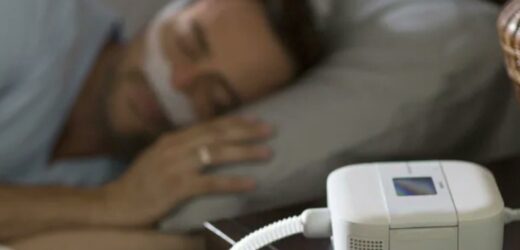More On:
recalls
Fisher-Price kept kid-killing sleeper on the market for a decade: House panel
Fisher-Price recalls baby soothers after 4 infant deaths
Peloton developing handheld gadget amid treadmill recall
Pacemakers recalled over risk of electrical short
Philips is recalling millions of devices — including sleep apnea machines and ventilators used for coronavirus patients — over concerns that a component could cause cancer and respiratory problems, the company said Monday.
A foam piece used in millions of Philips “DreamStation” PAP, CPAP and ventilator devices can degrade and release potentially toxic fumes into patients, the Dutch medical firm said in a release.
Exposed people could be at increased risk of cancer, respiratory issues, inflammation, nausea and vomiting among other effects, according to the company.
Between 3 and 4 million devices are being affected by the recall, Reuters reported, citing Philips chief executive Frans van Houten.
About 80 percent of the devices being recalled are used for treating sleep apnea, while the remaining 20 percent are ventilators, the outlet reported.
Of the devices being recalled, several ventilators are used for treating coronavirus patients, according to the company’s site.
The recall is expected to cost Philips a whopping 500 million Euros, or about $606 million, according to the company.
In a message to patients, Philips warned that patients using ventilators should not automatically stop using them because the potential lifesaving benefits may outweigh the potential risks of toxic foam.
The company is working on a program to replace the foam piece that must be approved by regulators, Philips added.
“In consultation with the relevant regulatory agencies and in close collaboration with our customers and partners, we are working hard towards a resolution, which includes the deployment of the updated instructions for use and a comprehensive repair and replacement program for the affected devices,” said van Houten.
“We deeply regret any concern and inconvenience that patients using the affected devices will experience.”
Philips spokesperson Kathy O’Reilly did not immediately reply to a request for comment.
Share this article:
Source: Read Full Article


